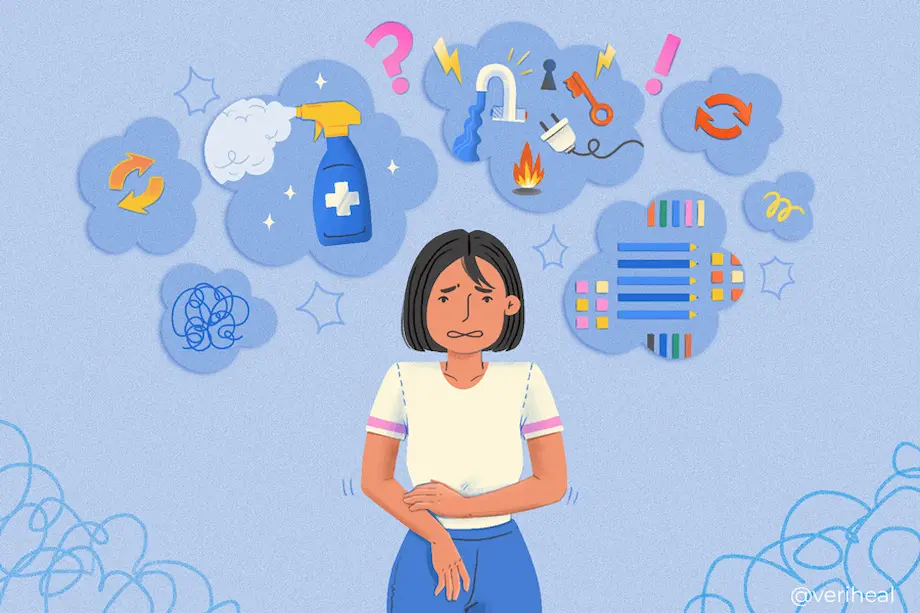Introduction:
CBT for OCD is one of the most effective treatments for managing obsessive-compulsive disorder. This structured therapy focuses on identifying and reframing negative thought patterns while addressing compulsive behaviors. By empowering individuals with practical tools, CBT provides long-lasting relief and improved quality of life.
Obsessive-Compulsive Disorder (OCD) is a mental health condition characterized by intrusive thoughts (obsessions) and repetitive behaviors (compulsions). These thoughts and actions can disrupt daily life and cause significant distress. While the exact cause of OCD remains unclear, effective treatments like Cognitive Behavioral Therapy (CBT) can provide substantial relief.
This article explores the transformative role of CBT for OCD and how it empowers individuals to regain control of their lives.
For Consultation with the Best Psychiatrist in Delhi for the Best OCD Treatment in Delhi, consider visiting:

What Is Cognitive Behavioral Therapy?
CBT is a structured, evidence-based psychotherapy that helps individuals identify and alter unhelpful thoughts and behaviors. It is particularly effective for conditions like OCD because it targets the root causes of obsessive thinking and compulsive actions.
In CBT, individuals learn to:
- Recognize and reframe irrational thoughts.
- Develop healthier coping mechanisms.
- Gradually face their fears through exposure therapy.
5 Key Benefits of CBT for OCD
1. Targeted Symptom Reduction
CBT provides specific tools to address OCD symptoms. Techniques like Exposure and Response Prevention (ERP), a subtype of CBT, help individuals face their fears without resorting to compulsive behaviors. Over time, this reduces the intensity of obsessions and compulsions.
2. Improved Emotional Resilience
CBT for OCD helps individuals understand and manage feelings of shame, guilt, or anxiety. By challenging negative thought patterns, it fosters emotional resilience and confidence.
3. Enhanced Problem-Solving Skills
CBT equips individuals with problem-solving techniques that extend beyond OCD management. Whether dealing with daily stressors or complex challenges, these skills enhance overall mental well-being and productivity.
4. Personalized and Flexible Approach
Every individual experiences OCD differently. CBT for OCD sessions are tailored to the unique needs of each person, ensuring that therapy addresses specific challenges. The flexibility of CBT allows therapists to adapt techniques as progress is made.
5. Long-Term Effectiveness
Unlike quick fixes, CBT for OCD fosters lasting change. By teaching individuals how to independently manage their symptoms, it provides lifelong tools for mental health maintenance. Research consistently highlights its effectiveness in reducing OCD symptoms even years after therapy ends.

How Does CBT Work for OCD?
CBT for OCD involves structured sessions with a licensed therapist who guides individuals through various techniques:
- Cognitive Restructuring: Identifying and reframing unhelpful thoughts.
- Exposure and Response Prevention (ERP): Gradually exposing individuals to anxiety-provoking situations and helping them resist compulsive behaviors.
- Mindfulness Techniques: Encouraging awareness of present thoughts and feelings without judgment.
These methods work together to break the cycle of obsessions and compulsions, leading to improved quality of life.
Tips for Maximizing the Benefits of CBT
- Commit to the Process: Consistency is key. Regular attendance and active participation in sessions ensure the best outcomes.
- Practice Between Sessions: Homework assignments from your therapist reinforce what you learn during therapy.
- Set Realistic Goals: Progress may be gradual, but each step forward is meaningful. Celebrate small victories along the way.
- Build a Support Network: Share your journey with trusted friends or family members who can encourage you through challenges.

Final Thoughts
CBT for OCD is a life-changing treatment that empowers individuals to confront their fears and regain control over their thoughts and behaviors. With its personalized approach and long-term benefits, CBT is a cornerstone in the management of OCD.
If you or someone you know is struggling with OCD, consider reaching out to a licensed mental health professional to explore CBT. For additional information and support, visit trusted government resources like NIMH or WHO.
By taking the first step, you can unlock the potential for a brighter, healthier future.

